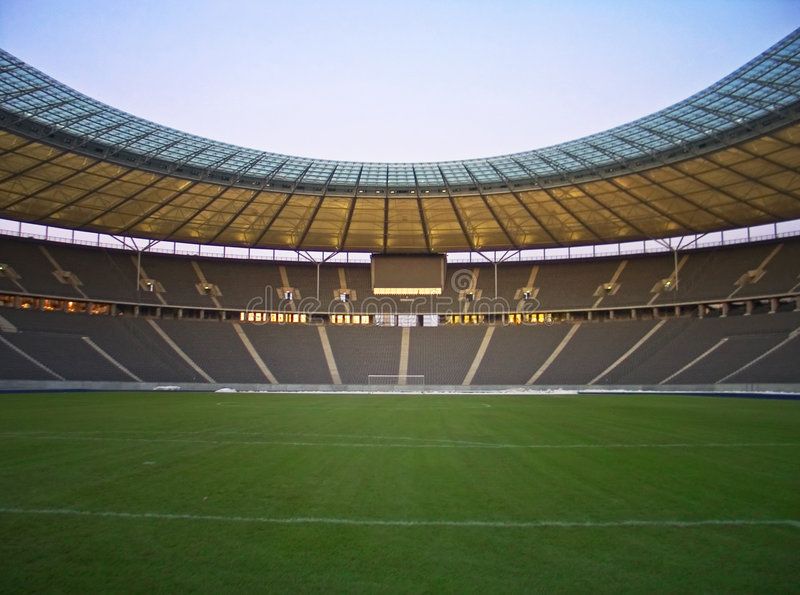The Covid-19 outbreak affected people all around the world and crippled global economy. Lebanon, already on the verge of a political, economic and financial downfall, is receiving its fair share of suffering due to this outbreak. While the main focus is currently – and understandably – on necessities like healthcare and foodstuff, other sectors like sports are being overlooked and look set to suffer great losses in the aftermath of the outbreak.
A Force Majeure Event?
Force Majeure refers to the occurrence of an extraordinary event that prevents a party from performing its obligation(s) under a contract, through no fault of their own.
Under Lebanese Law, the concept of Force Majeure is referred to in article 341 of the Code of Obligations and Contracts as “the impossibility of performance of an obligation without the obligor’s fault”. Jurisprudence and case law helped further define the notion of Force Majeure portraying it as an unforeseen, unavoidable event beyond parties’ control that prevents one or both parties to a contract from fulfilling their contractual obligations.
Historically, Lebanese courts have had a tendency to adopt a conservative approach with regards to Force Majeure, making it narrowly construed and difficult to establish. Although precedents similar to Covid-19 are unavailable due to its nascent aspect, we can look at other Force Majeure cases to analogize the reasoning behind the application of such clauses. Evidently, if pandemics are included in the scope of a Force Majeure clause, Covid-19 would automatically trigger such clause as the parties will have sanctioned it beforehand. However, in the cases where the contract has not explicitly listed pandemics as cases of Force Majeure, it will be to the sole discretion of the courts to determine on a case-by-case basis, whether they would be constituting an event of Force Majeure or not. The outcome will depend on, inter alia, the circumstances of the case, the impact caused by the event and the ability of the parties to mitigate the damages.
As far as sporting events are concerned, Covid-19 will most likely be interpreted as a cause of Force Majeure. In fact, it was declared by the World Health Organization as a pandemic and caused the majority of states around the globe to announce complete lockdowns, including temporary closure of businesses, borders, airports and prohibition of gatherings. Considering sporting events are a common cause of people coming together in large groups, this likely renders the performance of most sport-related contracts impossible due to external factors unrelated to the parties.
What would happen in the event a tribunal interprets Covid-19 as a cause of Force Majeure in a particular contract? Will the court impose late performance on the defaulting party or will it exempt them from performance of the contract altogether? Would the tribunal impose compensations on the defaulting party due to the event of Force Majeure? If so, how would it calculate them?
These questions will be partially answered by the discretion of tribunals, but most importantly by the parties’ preventive and curative measures in response to such unforeseen events. The most important curative measure is diligence in negotiating contracts. As for relevant curative measures, adhering to international best practices, following the guidelines of the sports’ governing body – even if hortatory – can go a long way.
Contractual disputes?
Sporting clubs customarily enter into agreements with their players, staff, sponsors, etc. These agreements will have been heavily affected by the Covid-19 outbreak and need to be carefully readdressed to prevent major fallouts in the sports industry. For instance, FIFA established a taskforce to discuss the legal repercussions of Covid-19 in line with article 27 of the Regulations on the Status and Transfer of Players[1]. This taskforce issued a set of non-binding guidelines that addresses the issue of contractual disputes between clubs and players. It requested that players, clubs and coaches negotiate payment terms “in order to guarantee some form of salary payment to players and coaches, avoid litigation, protect contractual stability, and ensure clubs do not go bankrupt”[2]. But contractual disputes between clubs and players are only the tip of the iceberg as broadcasters and sponsors are also heavily affected by the current situation. To put it simply, clubs are not paying their players because they are unable to play. Sponsors are not paying clubs because clubs are not able to honor sponsorship agreements. Media networks who have already paid federations for their broadcasting rights are now looking for compensation as all sporting events have been suspended.
These disputes will not be limited to clubs and players as governing bodies are also set to take part in them. For example, if the Lebanese Football Association decides to extend the season, it would also have to change the transfer window dates. Such a change will also bear consequences on all completed transfers – that normally anticipate the start and end dates of the season. This is why governing bodies have to carefully negotiate with all parties before deciding the fate of competitions.
Governing bodies’ approach
Each governing body has its own body of rules & regulations that govern the relationship of clubs with one another and ensure the smooth running of competitions. These governing bodies will have to make a determination on the fate of competitions post-corona.
The Tokyo Olympics and the European Championships have already been postponed. Wimbledon, the oldest tennis tournament in history, has been canceled. Ligue 1 abandoned the current season with the final standings based on a points-per game ratio, essentially meaning the current table is considered final and many clubs have already announced their intention to appeal this decision. Bundesliga only resumed on May 16, and other European leagues are set to follow suit. The NBA may extend the season through late August in a bid to mitigate damages but face multiple logistical hurdles. This is only to name a few.
Lebanese governing bodies will have to make a determination on the current season that satisfies most parties involved and minimizes the risk of legal disputes. The considerations that will be factored in are finalizing the competitions – in a way or in another – deciding on championships, relegations, transfers, sponsorship deals, broadcasting rights, etc. How will they achieve that without putting themselves at risk of lawsuits? What is the best approach to go by these impending disputes?
The approach chosen by governing bodies and the decisions they ultimately take is up to them, however, it is important to remain clear and unequivocal in the reasoning of their decisions to prevent subsequent fines and sanctions. In fact, after the Royal Moroccan Federation of Football “FRMF” withdrew from hosting the African Cup of Nations in 2015, the Confederation of African Football “CAF” imposed sanctions on them. FRMF submitted an appeal before the Court of Arbitration for Sport “CAS” against these sanctions and CAS dismissed the appeal because it considered that Ebola virus was not a Force Majeure event as it only rendered the organization of the African Cup of Nations more difficult, not impossible[3]. The CAF subsequently imposed a 1 million US dollars fine on the FRMF and a compensation of 8.05 million Euros to the CAF and its stakeholders[4].
To sum it up, the repercussions of Covid-19 will soon take center stage as people look to minimize the financial burdens resulting from the outbreak. Whereas other industries like food and healthcare may benefit from certain state aids and government subsidies, the sport industry is likely to suffer substantial losses, with little or no financial assistance offered by officials. Lawsuits for compensations seem inevitable and may live long after Covid-19 becomes nothing but a dark memory.
[1] https://resources.fifa.com/image/upload/regulations-on-the-status-and-transfer-of-players.pdf?cloudid=adi1292xtnibmwrqnimy.
[2] https://www.reuters.com/article/uk-health-coronavirus-soccer-fifa-exclus/exclusive-fifa-draws-up-guidelines-to-tackle-pay-cut-complaints-idUKKBN21N0JK
[3] CAS 2015/A/392
[4] https://www.tas-cas.org/fileadmin/user_upload/Media_Release_FRMF_CAF_3920.pdf
Authors
Nicolas G. Melki – Partner, Melki & Associates Law Firm (Beirut, Lebanon) nicolas@melkilawfirm.com
+961 5 45 45 84
Nicolas is a New York qualified lawyer who is also admitted to practice law in Lebanon. His main area of expertise is corporate and commercial law and his client base is composed of local and international corporations and investment holdings. Prior to joining the firm, Nicolas was an associate at Pillsbury Winthrop Shaw Pittman LLP and Baker Botts LLP in the United Arab Emirates, where he advised on M&A, project finance and corporate finance deals. Nicolas has also worked in-house at Petrofac International.
Dima A. Sarkis – Associate, Melki & Associates Law Firm (Beirut, Lebanon) d.sarkis@melkilawfirm.com
+961 5 45 45 84
Dima is admitted to practice law in Lebanon and she has a Master’s in corporate law from Universite Aix-Marseille. Dima regularly assists in most Project Finance, Capital Markets and M&A matters. She has participated in the research and drafting of several publications.




